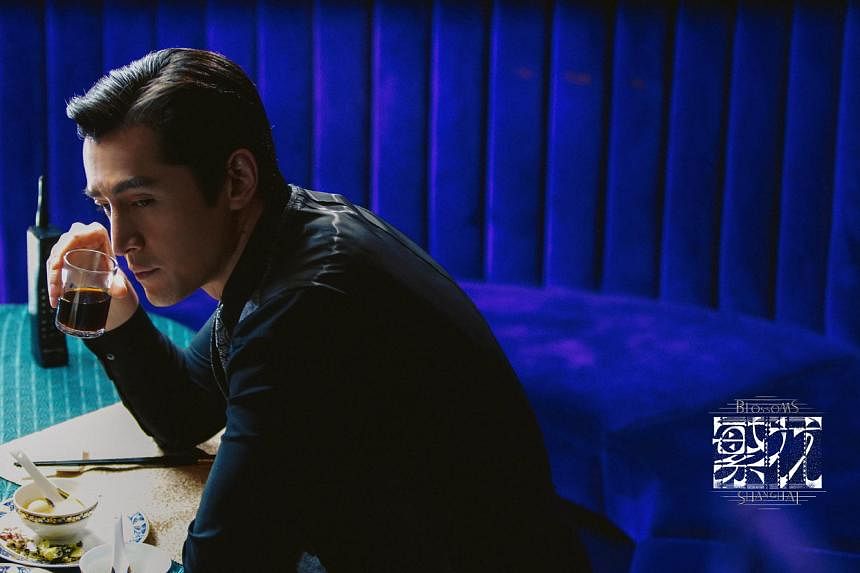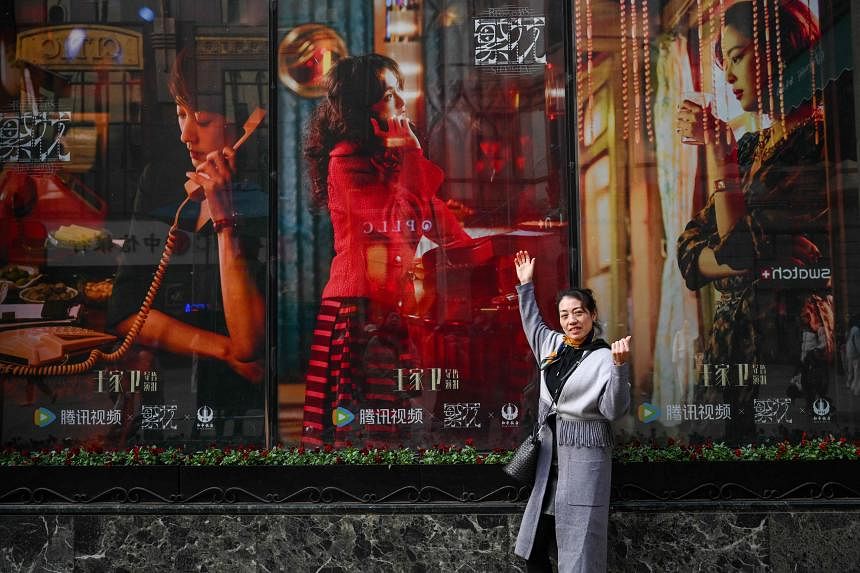SHANGHAI – A craze for Shanghai is sweeping China thanks to a television drama set in the city in the 1990s that has tapped growing nostalgia for a past era, at a time of deep economic malaise in the country.
Blossoms Shanghai, which aired the last of its 30 episodes on China broadcaster CCTV on Jan 9, tells the story of Ah Bao (played by Chinese actor Hu Ge), a young opportunist trying to strike it rich through the city’s then nascent stock market and export industry while romancing three women.
The show, originally a novel, was adapted by Wong Kar Wai, the first foray into TV for the celebrated autuer whose distinctive cinematography is present in the sultry aesthetics of Blossoms.
The 65-year-old Hong Kong director, who was born in Shanghai, is best known internationally for his movies, including In The Mood For Love (2000) and Chungking Express (1994).
Blossoms, which evokes memories of a more open and optimistic time, comes as China’s citizens struggle with an economic slowdown and tightening state control over all areas of business and private life.
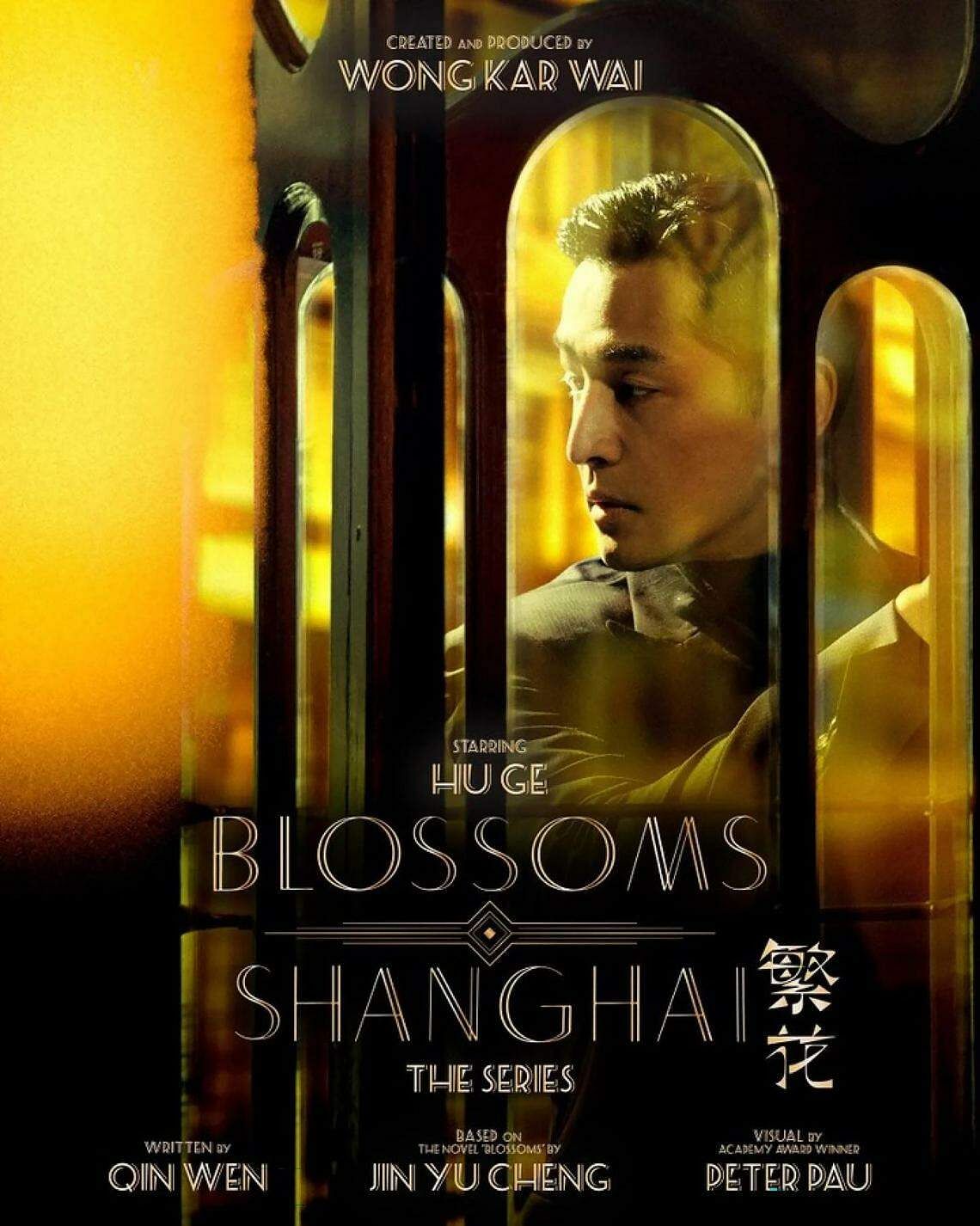
In Shanghai, that feeling of longing for the past is compounded by the lingering trauma of the Covid-19 lockdown, where residents were forced to stay in their apartments for months. That anger culminated in rare street protests at the end of 2022.
“It brings back memories of the good old days,” said Mr Hao Hong, the Hong Kong-based chief economist of Grow Investment Group who is originally from mainland China. “It portrays a time of economic boom, in contrast to where we are today. It was also when the people’s minds were most liberated.”
Blossoms closely tracks the trajectory of China’s opening-up period, in which Shanghai played a central role. When paramount leader Deng Xiaoping took a trip southward in 1992 to trumpet economic reform, he stopped in the city and encouraged it to “change every year, and change enormously every three years”.
The show depicts the opening of Shanghai’s stock exchange and the construction of the landmark Oriental Pearl Tower.
“Given the chance, I would like to experience that era,” said 30-year-old Chloe Tao, a native Shanghainese. “Because that’s when everybody had hopes, and everything was growing.”
Evidence of the show’s popularity is visible in locations featured in Blossoms. Hundreds of people gathered at the crossing of Huanghe Road, a short street in the city centre once famous for its high-end restaurants and neon signs, as police officers stood by to control traffic.
In the show, Ah Bao frequently cuts deals with business partners over Australian lobsters and expensive baijiu (Chinese liquor) – symbols of China’s burgeoning upper class – at a restaurant in the area.
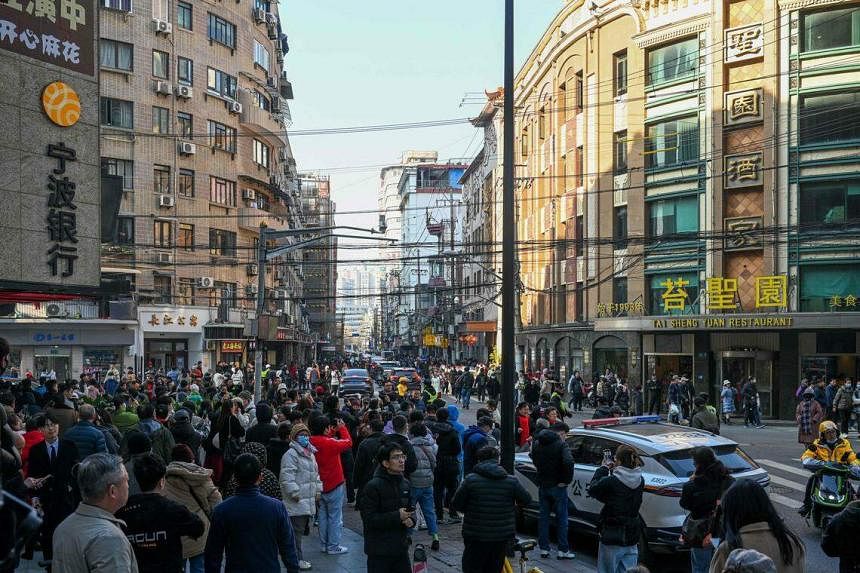
Ms Ding Mingquan, a manager at Tai Sheng Yuan, the restaurant where scenes were filmed, said daily revenue doubled to more than 160,000 yuan (S$30,532) since Blossoms debuted.
The eatery, which opened in 1993, regularly serves elderly Shanghainese, but younger people and those from outside the city have begun to show up, booking up private rooms till the upcoming Chinese New Year period.
Ms Ding projected five million yuan in revenue this month, which could help the restaurant end its loss-making streak since the pandemic.
Other businesses have smelled opportunity too. At the nearby Peace Hotel – the 1920s Art Deco icon on the Bund waterfront – the hotel suite used by Ah Bao is almost fully booked for the coming weeks at prices 20 per cent higher than those of similar suites on the same floor, according to travel platform Trip.com.
The hotel is also offering a Blossoms-themed meal for two, which costs 1,700 yuan and includes dishes like wok-fried rice noodles and braised catfish.
Ms Junna Tang, a 36-year-old Shanghai local, recently dressed up for afternoon tea at the hotel, taking photos for social media.
On the night of the finale, Ms Tang invited her friends to a watch party at her apartment, where they opened a bottle of wine and ordered in braised pork chops and rice cakes, local dishes loved by Ah Bao and one of his girlfriends in the show.
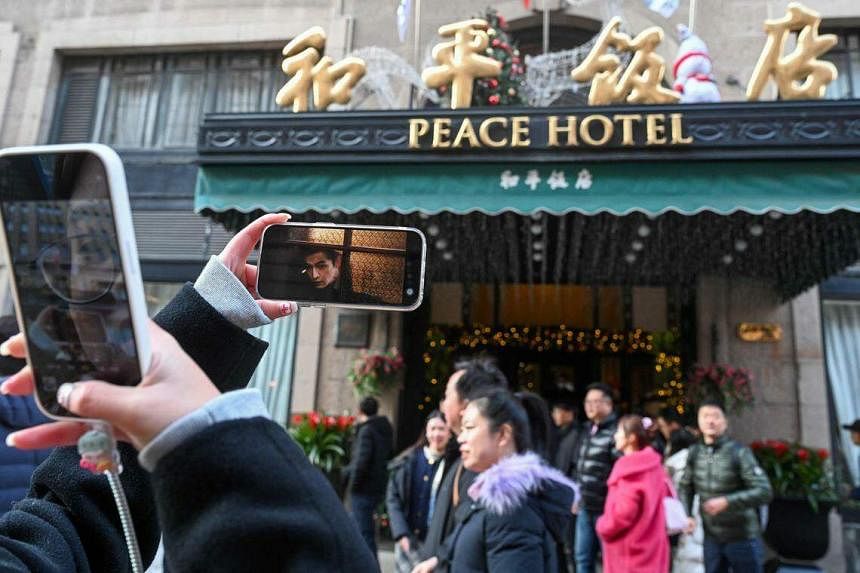
Mr He Yi, a theatre actor who plays a small role in the show as a street bully hailing from Shanghai’s grassroots, said Blossoms has even helped to rehabilitate the image of Shanghai within China, thanks to its rare depiction of different social classes in the city.
The city’s locals are often stereotyped as being haughty and shrewd, and its bourgeois lifestyle a point of ridicule. “We are losing our identity as Shanghainese, and it’s not just about the dialect,” said Mr He.
“Watching Blossoms is like celebrating the new year for us local performers, citizens, and anyone who understands Shanghai’s culture.”
BLOOMBERG
